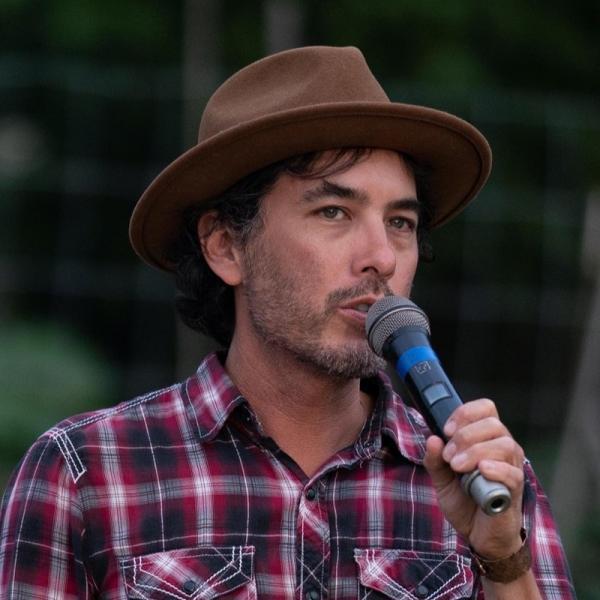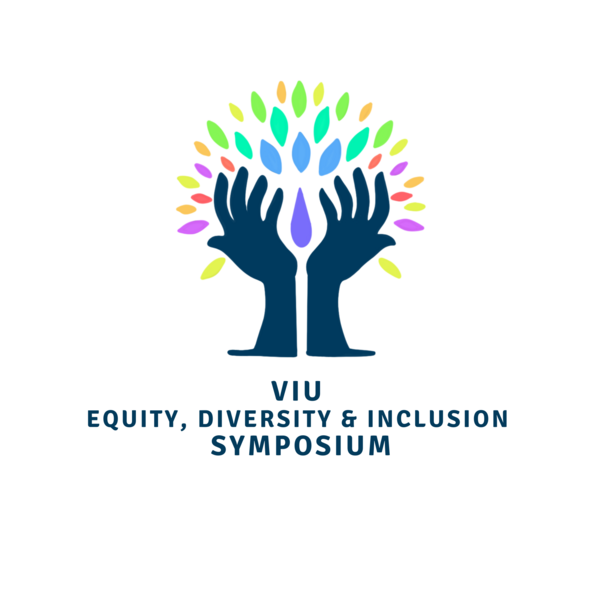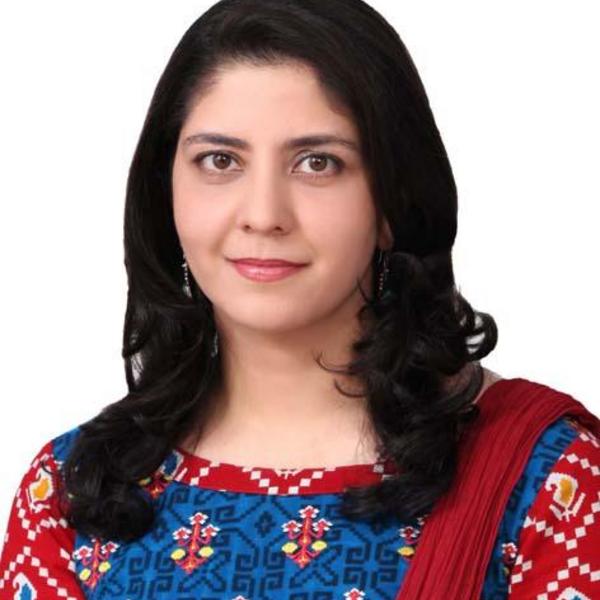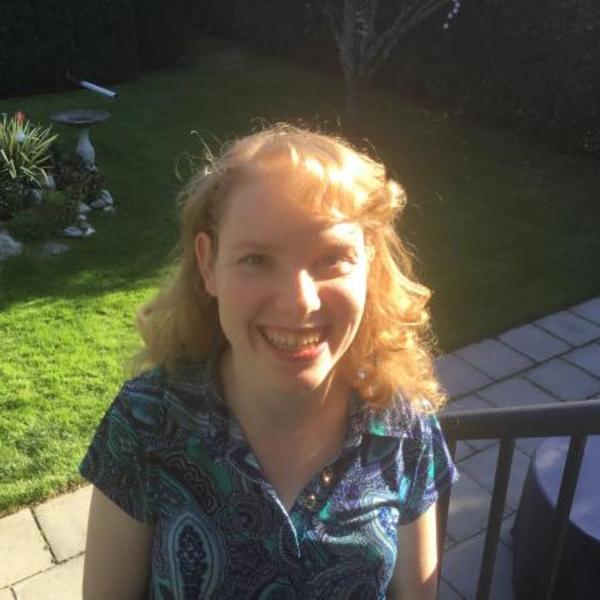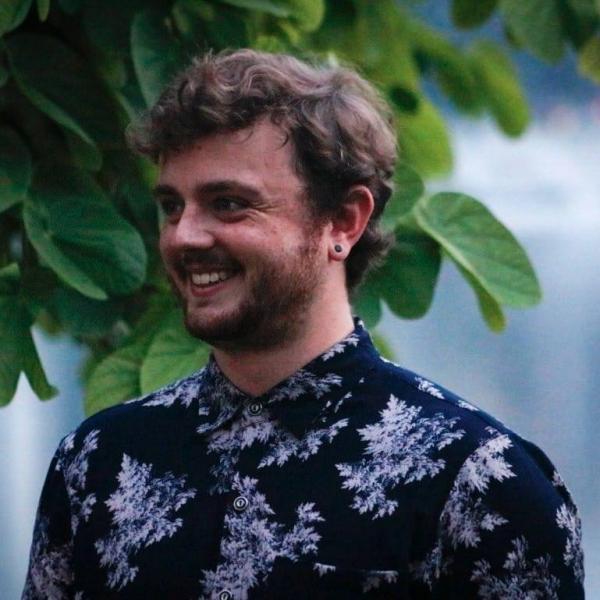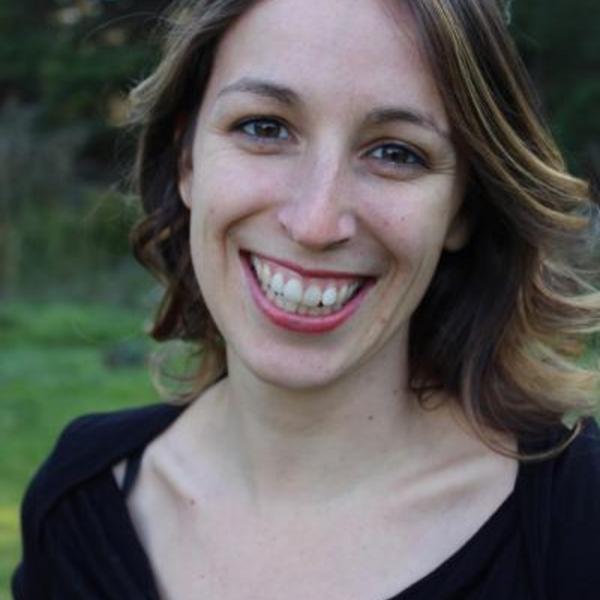
Background
As a values-based institution, VIU is committed to improving its community with a safe and inclusive environment for all. VIU has taken a proactive stance in equity, diversity and inclusion (EDI) issues. Knowing that other universities across Canada are also developing or implementing their EDI plans, VIU invited members of the Alliance of Canadian Comprehensive Research Universities (ACCRU), a network of small and medium-sized comprehensive universities from across Canada, to join a community of practice and collaborate in a symposium about the best practices for EDI Action Plans.
VIU led the Social Sciences and Humanities Research Council’s (SSHRC) Connection Grant to fund the symposium that will provide a venue for collaboration, discussions and shared learning around equity, diversity and inclusion action planning. The purpose of the symposium is to provide a space for the participating universities to collaboratively develop a deeper understanding of research-based EDI best practices, including how to build institutional capacity; how to handle resistance to advancement of EDI on campuses; how to manage institutional cultural shifts when prioritizing EDI at universities; how to effectively apply an intersectional lens to EDI action and analysis; and the legal and human rights aspects of EDI. The event will take place over two days (March 24-25) with sessions ranging from presentation of data to interactive workshops.
Participating Universities
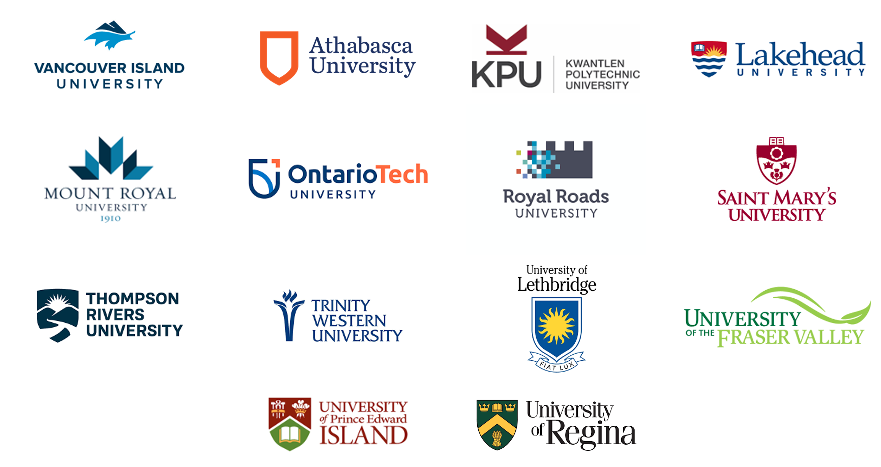
Goals of the EDI Symposium
- To catalyze and energize a network of institutions with similar interests in, and a commitment to, developing CRC and university-wide EDI plans for enhancement of research excellence at Canadian Comprehensive Research Universities.
- To provide a venue for sharing research-based best practices and lessons learned in the development of EDI plans.
- To curate and create a set of shared online resources such as policy guidelines and training materials for EDI plan development and implementation.
- To actuate a commitment among participating universities to reviewing and commenting on one another’s EDI plans, post-event.
The symposium will serve to initiate an EDI Community of Practice that will continue to collaborate for optimal EDI planning and implementation.
Symposium Sessions
On Day 1, the focus is on the general aspects of equity, diversity and inclusion and best practices based on the literature, primary or secondary data, and experiences. The following sessions on Day 1 until 1 pm (PST) are webinar style and open for all to register on a first come, first served basis. Register to join the webinar.
Webinar – Open to all registrants
| Time (PST) | Session | Speaker(s) |
|---|---|---|
| 8:30-9am | Welcome | Hosts and Local Indigenous Elder |
| 9-10am | Keynote address | Dr. Denise O’Neil Green VP, Equity and Community Inclusion, Ryerson University, Toronto, ON |
| 10:30-11am | Session 1 – Student Co-Curricular Talks | Taylor Lebrun Maria Clemotte Parshva Jain Seth Recalma |
| 12-1pm | Session 2 – Voices Panel: EDI Best Practices | Leif Rasmussen, Alison Taplay & Dr. Teresa Swan: Intellectual Disabilities (Vancouver Island University) Dr. Michael Quinn: Indigenous Researchers (Mount Royal University) Dr. Benita Bunjun: Cluster Hiring of Racialized Employees (Saint Mary's University) Tung Nguyen & Laura Clark: Gender/LGBTQ2S+ (Vancouver Island University) |
Session Details
March 24, 2021, 9 - 10 am
Keynote Title: Equity, Diversity and Inclusion (EDI) in the University: A Model of Inclusive Excellence
Abstract: Historically, the principles of equity, diversity and inclusion (EDI) have been at the margins of Canada’s postsecondary education sector. However, changing demographics along with economic and political forces, have moved EDI to a more central place in the foundation of university and college life but not without challenges of resistance and cultural barriers. In the early 2000s, three papers on Making Excellence Inclusive were commissioned by the Association of American Colleges and Universities to begin addressing those challenges and barriers. Almost 20 years later, Universities Canada released its own version of Inclusive Excellence Principles. Building upon the Making Excellence Inclusive monograph series and Inclusive Excellence Principles, this keynote seeks to advance promising EDI practices, to promote knowledge and skill development, and to inspire participants to take action that can set them on a path to operationalize their own Inclusive Excellence.
Speaker: Dr. Denise O’Neil Green, Vice-President, Equity and Community Inclusion, Ryerson University
Bio: Dr. Denise O'Neil Green was appointed Ryerson University’s first Vice-President, Equity and Community Inclusion in 2017. With a passion for advancing inclusive excellence, Dr. Green draws on her teaching, scholarly and leadership background of 30 years, establishing new and innovative pedagogical initiatives and programs. Dr. Green is accomplished in building rapport and networks, effectively collaborating with diverse stakeholders both inside and outside the university sector. Dr. Green brought the first White Privilege Conference (WPC) Global to Toronto in 2018 and convened the first University and Research Funding Agencies’ Equity Officers Roundtable. Dr. Green is well published in the area of EDI and is the Executive Editor for InstitutionalDiversityBlog.com. A frequent speaker on EDI in higher education, she has received numerous awards including the 2017 Association for the Study of Higher Education Council on Ethnic Participation Founders’ Service Award and the 2016 Pioneers for Change Award.
March 24, 2021, 10:30 - 11 pm
Students Co-Curricular Talks
1. Title: Co-Curricular Record (CCR) Talks: Building Intercultural Perspective in Campus
Abstract: CCR talks are like “Ted Talks” and relate to the art of concise story telling. These presentations provide an opportunity for student leaders to showcase their reflections and involvements on campus and within the community through their developed VIU Graduate Attributes. In this sessions, five students from different cultural and educational background reflect on their experience of equity and diversity at VIU and their thoughts on how to build a more developed environment where students can thrive, learn about diverse cultures and feel included as an active member of the post-secondary institution.
Speakers
Taylor Lebrun, Student Project Facilitator, Co-Curricular Record (CCR) Talks, Office of Co-Curricular Engagement and Learning (OCCEL)
Hi! My name is Taylor LeBrun and I am a 4th-year student studying Child and Youth Care, with a Child Protection specialization at VIU. I am one of the Co-Curricular (CCR) Talks facilitators. Some of my other roles on campus include a Community Leader and the Indigenous Program Leader on Student Residence.
Maria Clemotte, Student Communications and Strategy Lead, Co-Curricular Record, Office of Co-Curricular Engagement and Learning (OCCEL).
Hello! My name is Maria Clemotte and I am the Co-Curricular Record Communication & Strategy Lead! I am in my 3rd-year of my BA majoring in psychology (and minoring in liberal studies). I enjoy being outside, playing piano and singing, reading/writing, and spending time with people - feel free to reach out and connect with me!
2. Title: Understanding Equity, Diversity and Inclusion from the perspective of the Student
Abstract: The Student Leadership Circle (SLC) aims to build and host professional development workshops for all VIU student leaders. SLC is dedicated to leadership development and the cultivation of collaboration. Workshops are built based on the VIU Graduate Attributes. The theme for the symposium is Catalysing Ideas for Equity, Diversity and Inclusion Action. This session will consist of an open panel discussion constituting five student leaders sharing their thoughts and perspective on the importance of diversity and inclusion on campus. This session will also provide an opportunity for Faculty, Staff and attendees to ask questions related to the selected topic. The Student Leadership Circle will design the session to in a workshop style format where attendees will be split into groups and within each group there will be designated student facilitator.
Speakers
Parshva Jain, Student Project Facilitator, Co-Curricular Record (CCR) Talks, Office of Co-Curricular Engagement and Learning (OCCEL)
Hey Everyone, My name is Parshva Jain. I was born in Mumbai, India and came to Vancouver Island a little over 2 years ago and have been here ever since. I am in my second year of Bachelors of Business administration program majoring in Management. I am really passionate about student engagement and love Collaborating with new people.
Seth Recalma, Digital Student Engager, Co-Curricular Record, Office of Co-Curricular Engagement and Learning (OCCEL).
Hey everyone! My name is Seth Recalma and I am a recent graduate of the Bachelor of Business Administration program at VIU, with a major in marketing. I was the previous Chairperson of the Vancouver Island Leadership Conference and now I am working as one of the event & First Nations engagement coordinators at the Moose Hide Campaign. Currently I am still a student at VIU, taking courses in indigenous feminism and working in the OCCEL as a media developer for various programs. The OCCEL and the programs that they run are what changed my outlook on education and campus life as a whole, and I hope you enjoy all that it has to offer!
March 24, 2021, 12 - 1 pm
Voices Panel: EDI Best Practices
This panel discussion will provide perspectives on the four federally designated equity-deserving groups: persons living with disabilities, Indigenous persons, racialized persons, women and persons identifying as LGBTQ2S+. This panel will consist of four presentations, followed by a Q&A session.
1. Title: Inclusion of Persons with Intellectual Disabilities: Trends in British Columbia
Abstract: As full inclusion of persons with disabilities has advance there have been increasing opportunities for individuals to participate in areas of life that had previously not been accessible. This includes Post-Secondary Life. The panel will present three distinct models for inclusion at the post secondary level and will share information from the perspective of faculty and students. After a question and answer period, a facilitated discussion will deepen understanding, and provide opportunity to explore emerging trends further and generate new ideas.
Speakers: Leif Rasmussen, Alison Taplay & Teresa Swan, Vancouver Island University
Bios
Leif Rasmussen has been a practitioner in the field of disability on Vancouver Island for the past 20 years. Leif has been involved in residential care, respite care projects, supporting individuals with challenging behaviours and consulting with families, care. His interests include: supports services for persons with disabilities; Quality of Life; understanding and supporting behavior in children and adults with disabilities; as well research methods and analysis. Leif holds an Bachelor of Science in Psychology from the University of Calgary, as well as a Masters of Science degree in Educational Psychology: Rehabilitation Psychology.
Alison Taplay, MA is a professor with Vancouver Island University where she designs learning environments that are student centered, inclusive, relational, and process oriented. Her 30-year career in the community living sector providing direct support and leading the development of community based services informs her practice. She sees advocacy, innovation and engagement as essential tools for advancing the well-being of our public and post-secondary schools, organizations, communities and for the full inclusion of all citizens. Her research combines community development principles and participatory mixed methods to increase social justice. Her current project, Manufacturing Change: The K-lumet Pilot Project, explores a new model for the full inclusion of people with intellectual disabilities in the manufacturing sector.
Dr. Teresa Swan has a PhD in Community Rehabilitation and Disabilities Studies from the University of Calgary. She is an instructor in the Educational Assistant and Community Support Worker program at Vancouver Island University. Her professional work experiences include community support services such as residential care, day support services, and adult special education. Teresa's current research focuses on inclusive post-secondary education for learners with intellectual disabilities.
2. Title: Learning to Support Indigenous Researchers: Navigating the Changing Academy
Abstract: The Truth and Reconciliation Commission of Canada highlighted the critical importance of research in striving for reconciliation. In the five years since the release of TRC Calls to Action, the Canadian post-secondary community has responded with efforts to Indigenize the academy. This has included hiring more Indigenous faculty members and supporting more Indigenous research and scholarship. Although well intentioned, it has become evident that we have much to learn about how best to support the changes required to embrace and support these actions in a manner that recognizes Indigenous ways of knowing and supports Indigenous faculty members through the pathways of tenure and promotion. The presentation will highlight issues and challenges that we have addressed in the area of research arising from the implementation of the Mount Royal University Indigenous Strategic Plan.
Presenter: Dr. Michael Quinn, Vice Provost and AVP Academic, Mount Royal University
Bio: Dr. Michael Quinn is the Vice Provost and AVP Academic at Mount Royal University. His role includes oversight of research and scholarship. Michael is an interdisciplinary scholar and a consummate generalist with a penchant for the intersection of the social and natural sciences. Most of his scholarship has focused on social ecological systems with a particular bent towards the maintenance of biodiversity, the design and management of protected areas, the relationship between people and the rest of the natural world, the history of natural history. Much of his work has been conducted on a community-based research context often in Indigenous communities.
3. Title: Strategies for Strengthening Inclusion and Diversity: Affirmative Action and Cluster Hiring
Abstract: The presentation will discuss several considerations to strengthen inclusion and diversity of faculty within the culture of mid-size/small universities in Canada. I emphasize the need to challenge the singular focus of equity groups by recognizing the intersections and hierarchies across equity groups. I will discuss the need for consistent, long term strategies of hiring Indigenous, Black and faculty of colour by strengthening affirmative action hiring and retention policies. Affirmative action policies are only successful when senior administration invest in the necessary institutional capacity, support, training and mentorship.
Speaker: Dr. Benita Bunjun, Associate Professor, Saint Mary's University
Bio: Dr. Benita Bunjun is an Associate Professor at Saint Mary's University in the Department of Social Justice and Community Studies. She received her PhD in Interdisciplinary Studies at the University of British Columbia and completed a postdoctoral fellowship at Simon Fraser University with the Centre for Gender, Social Inequities and Mental Health. Dr. Bunjun is the past President of the Canadian Research Institute for the Advancement of Women. Her research examines organizational and institutional power relations with an emphasis on discourses of nation-building in relation to equity and affirmative action policies. Other research areas include: colonial gendered encounters, academic well-being of racialized students, mental health and labour, and (im)migrant/indentured labour.
4. Title: EDI Best Practices for Gender and LGBTQ2S+ Employees and Students
Abstract: Attention towards the inclusivity of LGBTQ2S+ individuals on campus has been increased given the issues identified in the recent EDI study conducted at VIU. Substantial support for the LGBTQ2S+ community has been established across campus settings, but the persistence of issues requires a more comprehensive approach. Examples include insufficiency of gender-neutral washrooms, lack of funding for LGBTQ2S+ student organizations, or lack of recognition within classroom contexts. While responses collected in the study are mostly from LGBTQ2S+ students, this presentation will provide recommendations for both students and employees identifying as LGBTQ2S+, considering the type of barriers as opposed to the type of people. These recommendations are birthed out of both the data itself and the presenters’ own lived experiences towards a greater practical inclusivity of LGBTQ2S+ individuals on campus.
Bio: Laura Clark (she/her/hers) is a first-year Masters of Community Planning student at Vancouver Island University with an undergraduate degree in Global Studies. Her thesis research examines an intersectional feminist lens with recommendations for Official Community Plans and urban design guidelines to create more equitable Canadian cities for women and LGBTQ2S+. Other areas of interest include community engagement, sustainable development and affordable housing.
Tung Nguyen (he/him/his) is a second-year international graduate student in Master of Arts in Sustainable Leisure Management. He has just finished his 1-year stint on the Board of Directors of the Nanaimo Pride Society. His thesis project is about sex-segregation and transgender people in recreational sports, aiming to make recommendations for an enhanced and intentional transgender inclusive policy-related change in recreational sports in BC, Canada.
March 24, 2021, 1:30 - 3 pm
In the afternoon, we will regroup in our invited session to reflect on the day’s proceedings and our thoughts on our previous experiences and the alignment or lack thereof in what we learned in the morning. This afternoon session will allow participants to reflect on their learning.
Zoom Meetings – By invitation only
| Time (PST) | Session | Speaker(s) |
|---|---|---|
| 1:30-2:50pm | Home Room #1: Share EDI Action Plan Experiences and Thoughts | Small groups – 4-5 participants from each university |
| 2:50-3pm | Concluding Reflections | Hosts |
By invitation
Day 2 will focus on establishing a community of practice on EDI Action Planning. Therefore, all sessions on March 25 will be by invitation only to facilitate relationship building and collaborative learning. These sessions will hone in on EDI Action Planning presentations and workshops. These collaborative and interactive sessions aim at allowing participating universities to reflect on their EDI Action Planning by sharing their experiences thus far, and future directions in EDI policy making, refining, and/or implementation in light of the discussions.
| Time (PST) | Session | Speaker(s) |
|---|---|---|
| 8:30-9am | Welcome Review & Reflections | Dr. Carol Stuart, Provost and Vice-President Academic (Vancouver Island University) |
| 9-10:15am | Session 1: EDI Action Plan Presentations | Gwen Hill & Lisa Robinson (Royal Roads University) Dr. Asma Sayed, (Kwantlen Polytechnic University) Drs. Eve Stringham, Sheryl Reimer-Kirkham & Robynne Healey (Trinity Western University) Dr. Kathleen McNutt (University of Regina) Monica Kay (Vancouver Island University) |
| 10:15-10:30am | Break | |
| 10:30-11:45am | Session 2: Interactive Workshop | Dr. Roselle Gonsalves (EDI Consultant) |
| 11:45am-12:45pm | Lunch break | |
| 12:45-2pm | Session 3: Interactive Workshop | Dr. Jennifer Chisholm & Dylan Mazur (Lakehead University) |
| 2-2:30pm | Home Room #2: Explore EDI Action Plan Ideas | All (in small groups) |
| 2:30-3pm | Bringing it all together | Dr. Carol Stuart, Provost and Vice-President Academic (Vancouver Island University) |
Session Details
March 25, 9 - 10:15 am
EDI Action Plan Presentations
This session will consist of five presentations on EDI Action Planning experiences by participant universities. The purpose of this session is to provide a venue to share experiences, barriers faced and lessons learned so that the participating universities can learn from each other as they work on their respective EDI Action Plan development and/or implementation. The presentations will be followed by a Q&A session. The following presentations are included in this session.
1. Title: Equity, diversity and inclusion: Capacity-building at a small institution
Abstract: Over the last three years, many post-secondary institutions in Canada have faced challenges in developing their EDI capacity in order to meet federal mandates. Resourcing, knowledge, and the essential partnerships required form common barriers to the advancement of this important work. Gwen Hill and Lisa Robinson have been co-leading the formal and informal development of EDI work at Royal Roads University since 2016 and have formed a partnership between Research Services and Human Resources. In this session, Robinson and Hill will discuss their approach, lessons learned, research and accompanying results, and the development of EDI initiatives at Royal Roads University.
Speakers: Gwen Hill & Lisa Robinson, Royal Roads University
Bios
Gwen Hill (she/her/hers) is a Research Development Coordinator in the Office of Research at Royal Roads University in Victoria, BC, Canada. She has 20 years of experience working in training and education, technical training, global development, and the development and support of competitive, high-quality research proposals in her current role. Gwen is passionate about the importance and development of supporting diversity and inclusion in the workplace, and about developing equitable policy and practice to create psychological safety. Gwen holds a Master of Arts in Interdisciplinary Studies, where her research focused on facilitating intergenerational communication. Her current educational endeavours include Centennial’s Inclusive Leadership program in support of a Canadian Diversity and Inclusion Professional designation.
Lisa Robinson (she/her/hers) is a Chartered Professional in Human Resources with over 25 years of experience working within learning; private and public sector; and not for profit environments. Throughout her career, Lisa has been committed to fostering a culture where dedication, interpersonal connections, lifelong learning, and a passion for making a difference are recognized, celebrated and valued. Lisa is the Associate Director, Human Resources (employee experience and organizational development) at Royal Roads University in Victoria BC. Lisa joined RRU in 2005 after spending almost 20 years in Banff, Alberta where she worked at The Banff Centre. Lisa holds a Diploma in Hospitality Management, a Graduate Certificate in Strategic Human Resources and an MA in Leadership with a research focus of employee engagement and recognition.
2. Title: Building a Robust Research and EDI Culture at Post-secondary Institutions in British Columbia
Abstract: Kwantlen Polytechnic University (KPU), along with many other university-colleges in British Columbia, received official university status in 2008 when the Government of British Columbia established a new mandate for KPU as a regionally-focused, special purpose university. For universities which are moving from the college model to the university model, building Equity, Diversity, and Inclusion (EDI) plans is a great opportunity and an immense challenge. How do we build a robust research culture inviting and including diverse approaches to inquiry while ensuring that the institution’s set goals for fostering EDI are met? In this presentation, I will share my experiences as a member of KPU’s Faculty of Arts’ Research and Scholarship Committee and our discussions about barriers to research and EDI for post-secondary institutions in British Columbia as we move toward building strategies for affirmative actions. I seek to identify central questions to explore how post-secondary institutions might establish EDI principles.
Speaker: Dr. Asma Sayed, Kwantlen Polytechnic University
Bio: Dr. Asma Sayed is Canada Research Chair in South Asian Literary and Cultural Studies and a professor of English at Kwantlen Polytechnic University. She specializes in South Asian Canadian diaspora, postcolonial studies, feminist cultural studies, and social justice issues. Her interdisciplinary research focuses on marginalization of gendered and racialized people as represented in literature, film, and media. Her publications include several books and multiple articles in academic journals and anthologies. She is the President of the Canadian Association for Commonwealth Literature and Language Studies (2019-21).
3. Title: When identities collide: Navigating the intersection of institutional identity and EDI
Abstract: Like all institutions with Canada Research Chairs and tri-agency funding, Trinity Western University is committed to the development and implementation of an effective EDI action plan that is consistent with the CRC Secretariat as well as the Universities Canada Inclusive Excellence Principles. Trinity Western University is a distinctive private not-for-profit university legislated by the province to provide education from a Christian worldview perspective. For Trinity Western University, the issue of inclusion came to the forefront when the university proposed starting a law school. The university received frequent media attention regarding its Christian identity and its code of conduct (called a Community Covenant) that was viewed to be discriminatory against LGBTQ2S+ students. The controversy sparked a lot of self-reflection on campus, where we asked ourselves if we were the inclusive, supportive community we thought we were. To address this issue, a small number of faculty and administrators started a "hospitality group." We surveyed students and met with various underrepresented groups (visible minorities, international, indigenous, disabilities, LGBTQIA2S+) to better understand how we could ensure that all students have a strong sense of belonging in the community. This led to a report containing 28 recommendations including the development of an EDI action plan, an inclusivity statement for course syllabi, and training in unconscious bias. This presentation will discuss the challenges and opportunities navigating in a space where religious identity might seem to collide with EDI best practices. Rather than being exclusionary, we offer an approach based on practicing Christian hospitality to promote EDI in a unique setting. This presentation will describe TWU’s experience, and the work of the Hospitality group in advocating for Christian hospitality as an approach to resolving tensions when identities appear to collide.
Presenters: Drs. Eve Stringham, Sheryl Reimer-Kirkham, Robynne Healey, Trinity Western University
Bios
Dr. Eve Stringham is currently the Dean, Faculty of Science and Technology at Vancouver Island University. Previously, she was Vice Provost Research and Graduate Studies at Trinity Western University. She is the former Canada Research Chair in Developmental Genetics and Disease, and was providing oversight to the development of the TWU institutional EDI action plan.
Dr. Sheryl Reimer-Kirkham is Professor and Dean of Nursing at Trinity Western University. A member of the College of New Scholars, Artists, and Scientists of the Royal Society of Canada, Reimer-Kirkham’s research focuses on the areas of culture, religion, equity and health, with particular attention to how difference and spiritual caregiving are negotiated in clinical settings. She currently is leading a SSHRC funded project on human rights and albinism that includes a study on mothering and albinism in Tanzania.
Dr. Robynne Healey is Professor of History and Co-Director of the Gender Studies Institute at Trinity Western University. Her research is focussed on the history of Quakers in North America. The presenters are all members of the Hospitality group at Trinity Western University that produced an institutional core value statement on Christian hospitality.
4. Title: Mainstreaming Equity, Diversity and Inclusion: A Transformative Model
Abstract: To tackle institutional biases and organizational discrimination, the University of Regina (UofR) will design, implement, and evaluate a transformative model of mainstreaming equity, diversity, and inclusion (EDI). Mainstreaming is an evidence-based approach used to address multiple equalities and intersectionalities, which refers to the intersection of various form of social identities such as gender, race, sexual orientation, disability, age, religion and so forth. While traditionally associated with gender equality, mainstreaming is increasingly being applied to diversity measures as well. It is a strategic approach that directs attention to all inequalities and aims to ensure that EDI considerations are included in all decision-making processes. Mainstreaming also plays a challenge function including the creation of multilevel accountabilities, extensive engagement and consultations, and on-going assessments to undertake course corrections. In this panel, I will be speaking to the UofR mainstreaming model, the EDI progress made, and some of the major challenges we have faced.
Presenter: Dr. Kathleen McNutt, University of Regina
Bio: Dr. Kathleen McNutt is currently the Vice President (Research) at the University of Regina. She most recently held the position of Associate Vice President (Research) and the Dean of the Faculty of Graduate Studies. She was the former Executive Director of the Johnson Shoyama Graduate School of Public Policy Saskatchewan’s Public Policy School where she worked for both the University of Regina and the University of Saskatchewan. McNutt served as the principal researcher on the Saskatchewan’s Regional Colleges: Towards a New System Regional College Review Final Report, as a member of the Ministry of Advanced Education Deputy Minister’s Policy Panel on the Future of Post-Secondary Education, and is currently the Board Chair of Saskatchewan Higher Education Quality Assurance Board. She also serves as a board member on the Confucius Institute at the University of Regina and Canadian Rhodes Scholarship Selection Committee. McNutt is a full professor and holds a Bachelor of Arts from the University of Regina, Masters of Art from the University of Alberta and a Ph.D. from Simon Fraser University. She has a very active research agenda and has over 30 scholarly peer reviewed publications, a variety of academic chapters and public reports, and has presented her research all over Canada and Europe.
5. Title: Equity, Diversity, Inclusion and Human Rights: Shifting the Framework, Gaining Momentum
Abstract: Recent years have seen a surge in energy and activity across university campuses related to equity, diversity and inclusion. Universities are called on, seek to, and must, do more and do better on virtually every aspect of EDI. At the same time, most (and particularly small and medium-sized) universities face significant challenges with resourcing, as well as historic systems and structures - including in relation to EDI - that are in need of re-visioning to better support our communities. The energy of the current climate may be an ideal time to engage community consultation and dialogue: to consider not only our gaps, and much-needed goals and actions, but just as importantly, how we will communicate through multiple complex challenges, deepen our understanding and relationships, and grow stronger as a community.
Presenter: Monica Kay, Vancouver Island University
Bio: Monica Kay (she/her) is the Director of Diversity, Equity and Human Rights at Vancouver Island University. Monica began her work in equity, diversity and inclusion in the late 1990’s, as an officer with the previous BC Human Rights Commission. She then took on an advisory role with the Greater Vancouver Regional District Labour Relations Department, supporting multiple municipal employers with legal advice and educational resources on equity- and human rights-related issues. Subsequently, Monica became the Director of the City of Vancouver’s EEO Program, a role which focused on developing equity-promoting projects and resources across City Departments, as well as overseeing human rights policy and procedure. Monica moved to the post-secondary sector in 2011, and to VIU in 2017. Monica holds a law degree from UBC and Honours degree in Psychology from SFU.
March 25, 10:30 - 11:45am
Interactive Workshop
Title: On-campus Resistance to EDI Work: An Interactive Conversation
Abstract: Canadian post-secondary institutions are in the midst of a crucial surge to adopt, engage, and implement strategies of equity, diversity, and inclusion in a myriad different ways: including the recruitment of domestic and international students, the hiring of faculty for teaching and research excellence, and in academic and other on-campus programming. Simultaneously, on-campus EDI work is often relegated to isolated departmental silos and fitful attempts. What are the reasons for the disconnect? This interactive conversation is a chance to explore the reason behind on-campus resistance to EDI work, and ways in which EDI champions at post-secondary institutions can move the work forward on campus.
Speaker: Dr. Roselle M. Gonsalves, Director of Diversity, Inclusion, and Belonging, ATB Financial
Bio: Dr. Roselle M. Gonsalves is the Director of Diversity, Inclusion, and Belonging at ATB Financial, where she heads up the strategic initiatives to weave equity and inclusion into all aspects of the organization's endeavours. Her work in the field of EDI is underpinned by 10+ years of working and teaching in the areas of equity, diversity, and inclusion; and within diverse sectors including social services, consulting, and post-secondary. Roselle holds a Master's degree from the University of Toronto in Sexual Diversity Studies and Religious Studies, and earned her PhD at the University of Calgary in the study of transnational immigrant identity, Canadian multiculturalism, and intersectionality. Roselle approaches her work with a sense of humour, and a reflexive, intersectional, anti-oppression, anti-racism framework to allow for more inclusive ways of understanding the world.
March 25, 12:45 - 2pm
Interactive Workshop
Title: The Case for Universal Design for Learning in Canadian Post-secondary Education
Abstract: Over the past two decades, Universal Design for Learning “(UDL”) has existed as a niche pedagogical approach within the Canadian academy. As colleges and universities across Canada roll out equity, diversity, and inclusion (“EDI”) initiatives to address structural inequalities in academia, post-secondary administrators and educators should re-examine UDL, not simply as a novel teaching tool, but rather as a legal imperative to discharge their duty to accommodate under human rights law. Post-secondary education has been designed to serve normative minds and bodies, where students with disabilities (and other under-represented groups) have been forced into a burdensome and bureaucratic process to access basic academic accommodations. Students with disabilities are made to disclose intimate details of their medical conditions and are made to wait weeks (or months) for faculties or departments to decide whether or not the accommodation is “reasonable” and whether or not the student will be accommodated. These decisions have landed post-secondary institutions before countless numbers of human rights commissions and tribunals across Canada. Instead of litigating what is and what is not a reasonable accommodation, colleges and universities could discharge their duty to accommodate by incorporating principles of UDL in teaching and learning.
Speakers: Dr. Jennifer Chisholm & Dylan Mazur, Lakehead University
Bios: Dr. Jennifer Chisholm, Assistant Professor of Women’s Studies at Lakehead University, and Dylan Mazur, Director of Human Rights and Equity Lakehead University, will present an interactive workshop for conference participants on the legal and pedagogical dimensions of academic accommodations and Universal Design for Learning.
The Symposium Team
Amanda Claudia Wager, PhD
Canada Research Chair inCommunity-Engaged ResearchProfessor, Faculty of EducationTehmina Khwaja, PhD
Equity, Diversity andInclusion Postdoctoral FellowMelissa Lyon
Event Coordinator / Research Assistant
The Symposium Team
Cường Nguyễn
Event Coordinator / Website Manager
Alex Harte
Event Coordinator / Webteam / Photographer
Myriam Verzat
Nonviolent Communication Certified Trainer / Facilitator / Event hostThe Symposium Team
